A long-standing philosophy of alcoholism treatment has been that total abstinence is necessary and that there is no possibility that someone with a drinking problem could handle moderate drinking. Today we know a lot more about addiction thanks to research and we know that it is more complicated than was previously thought. So, is it possible for a problem drinker to continue drinking responsibly and in moderation? Or is abstinence the only way to go?
What Does Moderation Mean?
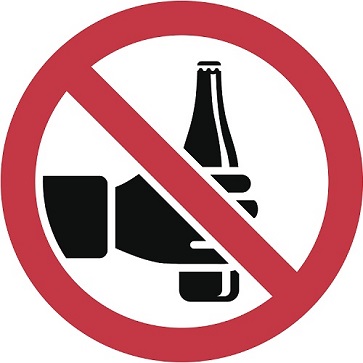 One immediate problem comes to mind when debating the possibility of moderate and responsibly drinking, and that is how to define it. Many problem drinkers and alcoholics are in denial about how much they drink and how much of an issue it is. It is not difficult to imagine that an alcoholic attempting moderation would use it as an excuse to keep drinking all the while claiming his habit was surely moderate.
One immediate problem comes to mind when debating the possibility of moderate and responsibly drinking, and that is how to define it. Many problem drinkers and alcoholics are in denial about how much they drink and how much of an issue it is. It is not difficult to imagine that an alcoholic attempting moderation would use it as an excuse to keep drinking all the while claiming his habit was surely moderate.
At a basic level moderation means setting reasonable drinking limits and sticking with them. According to the organization Moderation Management, which guides problem drinkers toward reducing their alcohol consumption, men should have no more than four drinks at one time and no more than 14 per week. For women, that amount is three at once and no more than nine per week. Both men and women are supposed to restrict drinking to three to four days each week.
Does Moderation Work For Problem Drinkers?
There are many proponents of moderation who claim that problem drinkers can more successfully establish a healthy relationship with alcohol by moderating than by abstaining. Research does seem to support this viewpoint. One study included participants, all of whom were problem drinkers to varying degrees, who attempted to moderate their habit rather than stop drinking completely. They used a website application designed to guide them through the process. Some used a simple website, while others used an interactive application.
The problem drinkers that used the website alone were able to raise their abstinent time during each month by about four percent. On days they did drink, their blood alcohol content dropped by 50 percent or more, which indicates that they reduced the amount of drinks significantly. For participants using an interactive application, the number of days without drinking at all doubled. Those that used both tools were able to reduce their drinking to fully moderate levels across the board.
Can True Alcoholics Drink Responsibly?
The study that showed moderation could be successful included some very heavy drinkers. However, they did not include people who experienced withdrawal, a key characteristic of alcoholism. So far there is little to no evidence that moderation could be possible for anyone who is seriously dependent on alcohol. In fact, many experts are in agreement that trying to drink moderately could be dangerous for true alcoholics.
This doesn’t mean that moderation is not a great way to help many people. Among all people who have a problem with drinking, most of them have not yet crossed the line into alcohol dependence. If these people can be reached with tools to help them change their drinking from a problem to responsible moderation, the incidence of alcoholism, and all the problems that go along with the disease, could be reduced.
For those people who are already physically and psychologically dependent on alcohol, abstinence is probably the only option. But, for millions of people across the country for whom drinking is a problem, moderation may be a strong motivational tool for making positive changes. The philosophy of abstinence only has been around for a long time, but a shift is starting to occur and it may be for the better.
Learn More About The Steps Of Alcohol Detox
22 Aug 2014
Heavy Drinking Tied To Metabolic Syndrome
Metabolic syndrome is the term that doctors and public health officials use to describe a collection of health concerns that significantly increase your chances of dying from heart disease or certain other causes. While some of the risks associated with heavy alcohol consumption are well established, researchers know relatively little about the potential connection between heavy drinking and the development of this syndrome. In a study published in May 2014 in the journal Alcoholism: Clinical & Experimental Research, researchers from Japan’s Hyogo College of Medicine assessed the impact that excessive alcohol intake has on the metabolic syndrome risks of middle-aged men.
Metabolic Syndrome
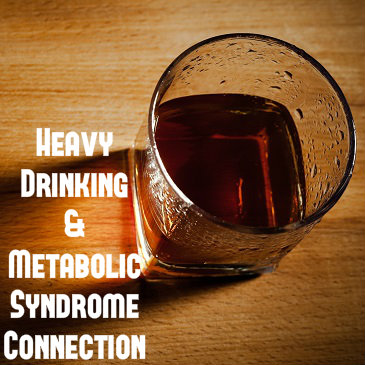 Metabolic syndrome gets its name because it involves changes in your normal metabolism, or the processing of chemical reactions inside the brain and body. Strictly speaking, the syndrome is not an illness; instead, it is a collection of risk factors for illness.
Metabolic syndrome gets its name because it involves changes in your normal metabolism, or the processing of chemical reactions inside the brain and body. Strictly speaking, the syndrome is not an illness; instead, it is a collection of risk factors for illness.
Specific factors involved in the onset of metabolic syndrome can include having a tendency to carry significant amounts of excess weight around your midsection, having a high count of a bloodborne fat called triglyceride, having low blood levels of HDL or “good” cholesterol (which removes excess LDL or “bad” cholesterol from your bloodstream), having abnormally high blood glucose or blood sugar levels and having unusually high blood pressure. As a rule, doctors consider making a diagnosis in people affected by a minimum of three of these risk factors.
Compared to the general population, a person with metabolic syndrome has a roughly 100 percent greater chance of developing some form of heart disease, the National Heart Lung and Blood Institute reports. The presence of the syndrome also increases the odds for developing type 2 diabetes by about 400 percent. Physical concerns most commonly associated with a metabolic syndrome diagnosis include maintaining a sedentary lifestyle and carrying enough body weight to qualify as overweight or obese. Other potential concerns include having an unusual resistance to the blood sugar-lowering effects of a human hormone called insulin, being older and having a genetic predisposition toward risk factors for the condition.
Excessive Or Heavy Drinking
Heavy drinking is a public health term used to describe excessive alcohol consumption on any given day or over the course of any given week. Men partake in this form of consumption when they drink more than four servings of alcohol per day or more than 14 servings per week. Women partake in heavy drinking when they consume more than three servings of alcohol per day or more than seven servings per week. Some heavy drinkers also qualify as binge drinkers by consuming enough alcohol to reach a legally intoxicated state in a single, fairly brief bout of alcohol intake. Participation in heavy drinking is conclusively linked with increased risks for developing diagnosable problems with alcohol abuse and/or alcoholism.
Examining The Connection Between Heavy Drinking And Metabolic Syndrome
In the study published in Alcoholism: Clinical & Experimental Research, the Japanese researchers used an assessment of a group of middle-aged men to compare the risks for metabolic syndrome among people in this age group who don’t drink alcohol, occasionally drink heavily and regularly drink heavily. For the purposes of the study, heavy drinking was defined as the consumption of at least 66 grams (2.3 oz) of pure alcohol on any given day when alcohol intake occurred. This is equivalent to the amount of alcohol in 3.8 standard drinks.
The researchers concluded that, compared to middle-aged men who don’t drink, men in this age group who occasionally participate in heavy drinking have a roughly 94 percent higher chance of developing metabolic syndrome. They also concluded that middle-aged men who regularly participate in heavy drinking have a roughly 48 percent higher chance of developing the syndrome. The occasional heavy drinkers are considerably more likely than their non-drinking counterparts to carry significant amounts of excess weight around their midsections. The regular heavy drinkers are considerably less likely than their non-drinking counterparts to have high blood sugar levels.
It may seem odd that occasional heavy drinkers apparently have substantially higher chances of developing metabolic syndrome than regular heavy drinkers. The study’s authors tentatively attribute this counterintuitive finding to the lowered risks for high blood sugar among people who regularly consume excessive amounts of alcohol, as well as to the increased risks for abdominal obesity among people who occasionally consume excessive amounts of alcohol. The authors also specifically note that the cardiovascular (heart and blood vessel) risks for metabolic syndrome apply to both occasional and regular heavy drinkers.
You’re married to the life of the party. You probably have a lot of fun with him. He loves going out with friends and entertains everyone with funny stories and goofy antics. Everyone loves him, right? But you see him the next day, worn out, hung over, unable to remember all the details of the previous night. Your husband or partner is paying a high price for his social status. Being the fun one is great, but if it is forced through the veil of drunkenness, he may have a serious problem with alcohol.
What Is An Alcoholic?
 The idea of your spouse as an alcoholic is scary. The odds are he isn’t one, but it is worth educating yourself about alcoholism if you suspect he drinks too much. Alcoholism, or alcohol dependence, is a true addiction and a serious disease. It takes a lot of drinking over a long period of time to become an alcoholic. If your husband binges and regrets it on weekends, he may not be an alcoholic — yet.
The idea of your spouse as an alcoholic is scary. The odds are he isn’t one, but it is worth educating yourself about alcoholism if you suspect he drinks too much. Alcoholism, or alcohol dependence, is a true addiction and a serious disease. It takes a lot of drinking over a long period of time to become an alcoholic. If your husband binges and regrets it on weekends, he may not be an alcoholic — yet.
One of the most characteristic attributes of alcohol addiction is the presence of withdrawal symptoms. These are real, physical symptoms that result when an alcoholic stops drinking. They include tremors, anxiety, nausea, sweating, insomnia, headaches, depression and fatigue. Alcoholics severely crave alcohol to make these symptoms go away.
What Is A Problem Drinker?
While your husband may not be an alcoholic, it does not mean that he doesn’t have a problem at all. He could be a problem drinker or an almost alcoholic. Problem drinking can often look very much like being the life of the party. A problem drinker may also be that tired working mom who needs a couple glasses of wine to relax at the end of the day, but then can’t sleep well or loses her cool with the kids. A problem drinker may be someone who has symptoms of depression and drinks to feel better instead of getting help.
Any type of drinking that causes problems is problem drinking. Your husband has fun at parties and may never drive home afterward, but the next day is shot because of his hangover. He regrets the fact that he started a stupid argument with you while he was drunk. You ask him to slow down his drinking at parties and he won’t do it. Your relationship gets to be tense as a result. These are all problems caused by his behavior.
Should I Ask My Spouse To Stop Drinking?
If you have determined that your husband is indeed a problem drinker, it’s time to sit him down for a talk. Understand that he will probably be defensive so approach the topic carefully. Do not bring up the idea of alcoholism and even avoid the term problem drinker if you think that will help. Lead with how his drinking makes you feel and how you fear it will damage your relationship in the future. Discuss how much better he will feel in the morning without a hangover.
His counter arguments are likely to be that he only drinks on the weekends to de-stress or that he drinks only socially and that it isn’t a big deal. Remind him of how he feels the next day, of the regrets he usually expresses and emphasize that his drunkenness impacts you. Tell him that you hope he will slow down, but not that you need him to quit drinking altogether. Suggest that you skip one party and do something together instead to strengthen your relationship. By being honest with him you can begin to address and correct the problems that his drinking is causing.
If his drinking gets worse, it may need to come down to a professional intervention. Call us now for intervention help. You and your partner’s relationship and physical/mental health are worth it!
Alcoholic hepatitis is a serious and potentially deadly liver ailment triggered by prolonged, excessive alcohol intake. It constitutes one form of a larger condition called alcohol-related liver disease. In a study published in May/June 2014 in the journal Alcohol and Alcoholism, researchers from two U.S. universities explored the potential usefulness of a medication called baclofen in easing the effects of alcoholic hepatitis in people affected by alcoholism. This medication, originally developed to treat certain types of muscle spasms, has already been shown to help people receiving treatment for alcoholism reduce the intensity of their cravings.
Alcoholic Hepatitis
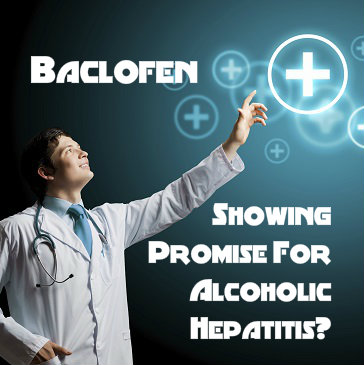 Hepatitis is the generic medical term for any disease mechanism that results in inflammation inside the liver, the body’s primary organ for doing such things as processing toxins and regulating cholesterol levels. Whenever you drink alcohol, a substance essentially poisonous to humans, your liver must process it and break it down so you can avoid any harmful effects.
Hepatitis is the generic medical term for any disease mechanism that results in inflammation inside the liver, the body’s primary organ for doing such things as processing toxins and regulating cholesterol levels. Whenever you drink alcohol, a substance essentially poisonous to humans, your liver must process it and break it down so you can avoid any harmful effects.
Unfortunately, the liver breaks down alcohol relatively slowly and you can easily overwhelm its capacity for detoxification. A person who regularly consumes excessive amounts of alcohol is at risk for one or more progressively damaging changes in his or her liver function.
The first of these changes, called alcoholic fatty liver disease, occurs when the liver starts to produce an abnormally large amount of fat inside its individual cells. Alcoholic hepatitis sets in after alcoholic fatty liver disease and produces symptoms such as jaundice, declining appetite, pain in the abdominal region, nausea and vomiting. The third stage of damaging change, called alcoholic cirrhosis, involves a permanent, disruptive buildup of scar tissue inside the liver.
As many as one-third of all people who habitually consume excessive amounts of alcohol will develop alcoholic hepatitis, the American Liver Foundation reports. The inflammation associated with the condition can have a negative impact on liver function that ranges from mild to severe. People with relatively mild forms of alcoholic hepatitis can recover their liver function if they stop drinking. However, people with relatively severe forms of the condition can experience rapid declines in liver health that lead to a cessation of function (i.e., liver failure). In turn, a person with liver failure can easily die.
Baclofen
Doctors traditionally prescribe baclofen for people experiencing muscle spasms stemming from either certain diseases that damage the spinal cord or the degenerative autoimmune disorder multiple sclerosis. The medication achieves its therapeutic effects in this context by slowing down the spinal cord’s rate of nerve cell interaction. Over the last few years, doctors have started using baclofen as an off-label treatment for the drinking cravings that typically arise during alcoholism recovery. If left unaddressed, these cravings can easily derail an attempt at establishing or maintaining sobriety. In 2012, researchers from France and Italy published the results of a study that confirmed the usefulness of baclofen in reducing the intensity of alcohol cravings.
Baclofen’s Usefulness In Alcoholic Hepatitis Treatment
In the study published in Alcohol and Alcoholism, researchers from Loma Linda University and UCLA used a small-scale investigation of 40 people to test baclofen as a treatment for alcoholic hepatitis. All of the study participants were affected by alcoholism; some of them had both alcoholic hepatitis and alcoholic cirrhosis, while others only had alcoholic hepatitis. Thirty-five of the 40 participants received baclofen at some point during a one-year time period; the average length of use for the medication was just under six months. The researchers gauged the effectiveness of baclofen by comparing the results of seven key tests for alcoholic hepatitis before and after treatment with the medication.
Thirty-four out the 35 baclofen recipients maintained their sobriety throughout the period under consideration. Critically, the researchers concluded that these individuals also experienced a significant reduction in the severity of their alcoholic hepatitis as measured through six out of the seven screening tests. In addition, they concluded that use of baclofen did not produce any substantial side effects.
The study’s authors believe their findings underscore both the usefulness and the safety of baclofen as a treatment for alcoholic hepatitis. However, the size of the study was quite small. As a result, the authors urge further work in this area in order to confirm their results and determine the specific doses of the medication that have the maximum benefits for people with alcoholism-related liver inflammation.
Find Out If Baclofen Can Help Treat Cocaine Addiction
30 Jul 2014
Is Alcohol Ruining Your Relationships?
You don’t need to be an alcoholic to have a problem with alcohol. Many people still believe that raging alcoholics are the only people who abuse alcohol. There are many signs that indicate you may have a problem, and one of the biggest is the way in which drinking effects your relationships. Whether it’s with your kids, spouse, parents or anyone else important to you, if alcohol is negatively impacting your relationships with other people, you have a problem.
Relationship Problems Signal Alcohol Abuse
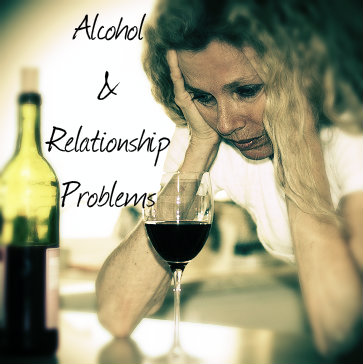 Having a problem with alcohol does not look the same from one person to the next. There are varying degrees, from the initial stages of abuse to full-blown non-functioning alcoholic. If you are questioning your relationship with alcohol, you should be aware of the signs of abuse. One of the most obvious ones is continuing to drink in spite of problems it creates in your relationships. Maybe you and your spouse only fight when you’re drunk. Or, you forget to pick your kids up from activities because you’re out at the bar with friends. Whatever it is, if drinking is at the root of a problem in one of your relationships, you are abusing alcohol.
Having a problem with alcohol does not look the same from one person to the next. There are varying degrees, from the initial stages of abuse to full-blown non-functioning alcoholic. If you are questioning your relationship with alcohol, you should be aware of the signs of abuse. One of the most obvious ones is continuing to drink in spite of problems it creates in your relationships. Maybe you and your spouse only fight when you’re drunk. Or, you forget to pick your kids up from activities because you’re out at the bar with friends. Whatever it is, if drinking is at the root of a problem in one of your relationships, you are abusing alcohol.
Alcohol Makes You Argue
One of the things many of us like about drinking is that it makes us feel bolder. Alcohol works in the brain to lower inhibitions, which is why you may feel more inclined to speak your mind when you’ve been drinking. An argument you would never start when sober often feels right when you’re tipsy. Arguing on a regular basis, especially unfruitful arguments fueled by alcohol, is not good for any relationship. Furthermore, many people also get aggressive when drinking. If you are normally a peaceful person but you feel angry when you drink, the people you care about around you are the ones who will suffer from your wrath.
Alcohol Takes Priority in Your Life
Constant arguing is bad for your relationships, but so is neglect. Another common relationship problem fueled by drinking is misplacement of priorities. If your spouse feels neglected because you would rather go out drinking with buddies, you are placing alcohol ahead of her on your list. The same can often happen with kids. Did you miss a school event or a soccer game because you were too drunk to get there? Your children can feel as if they are unimportant to you, which will have a terrible impact on your relationship with them.
You Deny Having a Problem
When your loved ones approach you to discuss your drinking and how it impacts them, do you brush it off? Do you refuse to admit the effect alcohol is having on your life and relationships? If so, this can further exacerbate the issue. If you can admit to the problem and agree to take steps to correct it, your loved ones will most likely support you. On the other hand, if you continue to deny the problem, you will only further damage your relationships. No change can happen until you open your eyes and see what alcohol has done to the relationships you have with the people you care about.
Your drinking may have already trashed any number of relationships in your life, but take away something positive from this. If you can take a step back and see what impact alcohol has had, you are in a position to make changes before it gets worse. Before you succumb to the disease of alcoholism, you can take steps now to turn your life around. Slow or stop your drinking, repair your relationships and move on with your life.
Learn More About The Link Between Alcoholism And Substance Abuse Among Women With Bipolar Disorder
IF YOU OR SOMEONE YOU LOVE IS STRUGGLING WITH ALCOHOL – PICK UP THE PHONE AND CALL US NOW – HEALING AND PEACE CAN BE YOURS TODAY!
22 Jul 2014
Why Do Heavy Drinkers Have A Lower Adherence To Naltrexone/Cognitive Behavioral Therapy?
Treatment programs for people affected by alcoholism commonly feature medications, some form of counseling or psychotherapy, or a combination of medication and counseling or psychotherapy. Together, a medication called naltrexone and a form of therapy called cognitive behavioral therapy have been shown to produce beneficial results in controlled testing. In a study published in March 2014 in The American Journal of Drug and Alcohol Abuse, researchers from two Finnish institutions sought to determine if the naltrexone/cognitive behavioral therapy combination works as well in a less controlled setting that mimics a typical treatment environment.
What Is Naltrexone And How Does It Work?
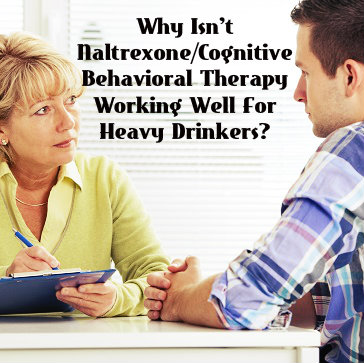 Naltrexone is a medication that blocks access to sites, called opioid receptors, located on nerves in both the brain and certain parts of the body. When used in a person addicted to opioid substances of abuse, this blocking action prevents the characteristic “high” associated with narcotics. For reasons that researchers and doctors don’t fully understand, the same blocking action helps reduce the amount of pleasure derived from alcohol consumption, in addition to decreasing the intensity of any urges to drink more alcohol.
Naltrexone is a medication that blocks access to sites, called opioid receptors, located on nerves in both the brain and certain parts of the body. When used in a person addicted to opioid substances of abuse, this blocking action prevents the characteristic “high” associated with narcotics. For reasons that researchers and doctors don’t fully understand, the same blocking action helps reduce the amount of pleasure derived from alcohol consumption, in addition to decreasing the intensity of any urges to drink more alcohol.
Together, these effects can help a person in recovery from alcoholism avoid relapsing back into a pattern of active drinking. As a rule, doctors give the medication only to recovering alcoholics who have entirely or largely halted their alcohol intake; doctors also typically use naltrexone as part of an overall treatment approach rather than as a sole component in treatment. The medication comes in forms that include tablets and an extended-release injection.
Cognitive Behavioral Therapy
Cognitive behavioral therapy is the umbrella term for a group of therapeutic approaches that focus on helping patients/clients identify and change thoughts and beliefs that can contribute to a range of harmful behaviors, including the abuse of alcohol and/or drugs.
Specific approaches that fall under this umbrella include rational behavior therapy, dialectic behavior therapy and rational emotive behavior therapy. Cognitive behavioral therapy takes place in a limited timespan that usually lasts for about four months. Unlike some forms of psychotherapy that maintain a strict hierarchy between the therapist and patient/client, it features a shared process that calls on the patient/client to take an active role in achieving his or her treatment objectives. The objectives for any given individual are specific to his or her particular situation and self-perceived needs and wants.
Does The Combination Of Naltrexone And Cognitive Behavioral Therapy Work For Alcoholism?
In the study published in The American Journal of Drug and Alcohol Abuse, researchers from Finland’s University of Helsinki and National Institute for Health and Welfare assessed the usefulness of the naltrexone/cognitive behavioral therapy combination as a treatment for alcoholism in a real-world environment. They chose this line of inquiry, in part, because of the relative lack of information on the combination in people actively receiving treatment outside of a controlled, experimental setting. During the study, the researchers gathered data from 315 outpatients receiving both naltrexone and cognitive behavioral therapy for a 20-week period. Measurements of treatment success included relative levels of alcohol intake and relative levels of alcohol craving among the participants.
After completing their analysis of the treatment outcomes, the researchers concluded that the naltrexone/cognitive behavioral therapy combination does not work equally well for all people recovering from alcoholism. Those individuals most likely to benefit from naltrexone and cognitive behavioral therapy were people who consumed relatively small amounts of alcohol before entering treatment. Conversely, the individuals least likely to benefit from the combination drank relatively heavily before entering recovery, had never been in a recovery program before and had a fixed pattern of alcohol consumption before entering treatment.
When Naltrexone And Cognitive Behavioral Therapy Works Best
The authors of the study published in The American Journal of Drug and Alcohol Abuse note that, strictly speaking, the combination of naltrexone and cognitive behavioral therapy did not fail to produce good results.
Instead, those individuals who fared poorly often did not take their prescribed doses of the medication, especially when they continued to engage in significant amounts of drinking while taking part in treatment. The authors believe that the fairly low rate of compliance with naltrexone use may pose a serious concern for the real-world treatment of alcoholism, especially among severely affected alcoholics.
Consequently, they also believe that alcohol programs may need to use a more comprehensive set of treatment options in order to help heavily affected alcoholics improve while in recovery. On a related note, doctors can use the extended-release, injectable form of naltrexone (Vivitrol) to overcome some of the problems with medication compliance.
Read Our Other Alcoholism Treatment Posts
Addiction researchers know that alcohol produces some of its effects inside the brain by activating sites called opioid receptors, found on the surfaces of nerve cells. However, they don’t completely understand the brain’s opioid receptor system, and therefore don’t entirely know how activation or deactivation of this system can help or harm a person who drinks excessive amounts of alcohol.
In a study published in May 2014 in the journal Biological Psychiatry, a team of U.S. and Danish researchers explored the alcoholism-related role of one specific part of the brain’s opioid receptor system. The researchers concluded that successful manipulation of this segment of the system could lead to the development of a new family of alcoholism medications.
Alcoholism Symptoms
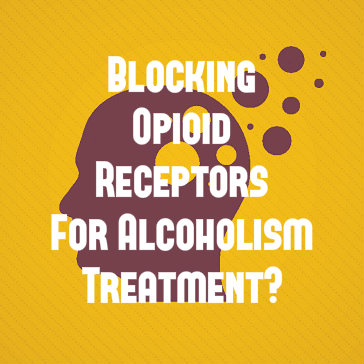 Alcoholism is partially defined by a physical dependence, a switch in long-term brain function characterized by a need to regularly consume alcohol in order to feel “normal.” In addition, people with the condition experience symptoms stemming largely from dependence, including recurring urges to keep drinking, an impaired or absent ability to limit drinking participation, increasing tolerance to the impact of any given amount of alcohol intake and the onset of a withdrawal syndrome if the brain’s requirements for alcohol go unmet.
Alcoholism is partially defined by a physical dependence, a switch in long-term brain function characterized by a need to regularly consume alcohol in order to feel “normal.” In addition, people with the condition experience symptoms stemming largely from dependence, including recurring urges to keep drinking, an impaired or absent ability to limit drinking participation, increasing tolerance to the impact of any given amount of alcohol intake and the onset of a withdrawal syndrome if the brain’s requirements for alcohol go unmet.
Alcohol Use Disorder
In any person, the symptoms of physically dependent alcoholism can overlap with the symptoms of non-dependent alcohol abuse. For this reason, current standards in the U.S. ask doctors to diagnose both alcoholism and alcohol abuse as components of a condition called alcohol use disorder.
Alcohol and Opioid Receptors
Opioid receptors get their name because they act as the pathways that allow opioid drugs and medications in the bloodstream to gain access to the brain and spinal cord (central nervous system). There are several types of these receptors on nerve cell surfaces in the brain. For reasons not fully understood by experts in the field, opioid receptors also play a role in giving alcohol access to the brain.
Pharmaceutical researchers have begun to exploit this fact by developing alcoholism medications designed to produce their treatment benefits by occupying the brain’s opioid receptors and thereby blocking alcohol from triggering some of its characteristic effects. One specific medication currently approved in the U.S. for use in alcoholism treatment, called naltrexone (ReVia, Vivitrol), blocks a particular type of opioid receptor and reduces alcohol cravings by diminishing the amount of pleasure derived from alcohol intake.
New Alcoholism Treatments?
In the study published in Biological Psychiatry, researchers from Washington State University and Denmark’s Neuroscience Drug Discovery used laboratory experiments on rats to investigate the role of one specific type of opioid receptor, called the K opioid receptor, in promoting the onset and continuation of alcoholism.
They chose to explore this topic, in part, in response to accumulating evidence that the K opioid receptor helps determine how people react to excessive alcohol intake. In particular, when a person drinks too much alcohol, activation of this receptor may lead to unpleasant emotional states and loss of the ability to feel pleasure. Counterintuitively, this situation may in turn trigger additional drinking as part of a conscious or unconscious attempt to offset the negative feelings associated with alcohol consumption.
During the study, the researchers supplied large amounts of alcohol to a group of rats for an extended period of time, and then allowed those rats to go through alcohol withdrawal. After examining the rats’ brains, they concluded that long-term, excessive alcohol consumption seriously disrupts function in a part of the brain responsible for helping to maintain critical functions, such as the ability to process emotions and make decisions.
While the rats were going through withdrawal, the researchers gave them a number of drugs designed to manipulate their brains’ K opioid receptors. After analyzing the impact of these drugs, they concluded that problems with the K opioid receptors play a significant role in producing the heavy alcohol consumption that people with alcoholism commonly rely on to cancel out alcohol withdrawal symptoms.
The study’s authors believe their findings may be critically important for the development of future medical treatments for alcoholism that produce their benefits by blocking access to the brain’s K opioid receptors. Specifically, they believe that such treatments could help achieve such goals as diminishing the emotional impact of alcohol withdrawal, helping people in recovery establish a stable state of abstinence and helping people in recovery otherwise meet the objectives of their treatment programs.
Learn About Topiramate Treatment For Alcoholism
07 Jul 2014
Are Binge Drinkers Addicted To Alcohol?
Binge drinking is a term used to describe heavy drinking. According to the National Institute on Alcohol Abuse and Alcoholism (NIAAA), binge drinking means having enough drinks in a two hour period to achieve a blood alcohol concentration level of 0.08, a level at which a person is considered to be intoxicated. Binge drinking is increasingly common, but does it make a person an alcoholic or addicted to alcohol? The answer is not so simple.
The Risks Of Binge Drinking
For women, binge drinking typically means having four or more drinks in a two-hour period. For men, it means having five or more drinks. Consuming this much alcohol in one sitting, or more, is detrimental to your health. And if you drink this way, you are not alone. One in every six adults in the U.S. binges four times a month. Each binge includes eight drinks on average. This is a lot of alcohol.
Binge drinking can lead to a number of health problems, not least of which is dependence on alcohol, or alcoholism. It can also cause:
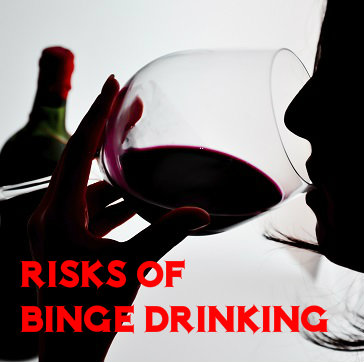 liver disease
liver disease- high blood pressure
- heart attack
- stroke
- neurological damage
- complications if you have diabetes
Binge drinking also leads to:
- accidents and injuries
- alcohol poisoning
- fetal alcohol syndrome
- unintended pregnancies
- problems with relationships
- strain on career and finances
What Is Alcoholism?
So does binge drinking make you an alcoholic? Not necessarily. Addictive disorders are most often diagnosed based on the Diagnostic and Statistical Manual of Mental Disorders. The fifth version of this manual recently came out with new criteria for alcohol addiction. The fourth edition listed alcohol abuse and alcohol dependence (alcoholism) as two separate disorders. The fifth edition merged the two into one disorder: alcohol use disorder. A person can be diagnosed as having a mild, moderate or severe case of alcohol use disorder.
According to the fifth edition, to have an alcohol use disorder you must have two of the eleven symptoms listed in the manual. Having two or three symptoms represents a mild case. Binge drinking is not listed as a symptom, but several of the symptoms could result from binge drinking. For instance, one symptom is drinking more than you intended to on a particular occasion. Many binge drinkers could claim doing this. Another symptom is trying to drink less, but failing. Again, this can happen with binge drinking.
There are several other symptoms that could go hand-in-hand with binge drinking. This means that if you binge drink and end up having two of these symptoms, you could be diagnosed as having mild alcohol use disorder. If the risks of binge drinking are not enough to make you want to slow down, maybe this fact is.
Stopping Binge Drinking
Moderate drinking is not harmful to your health, unless you have specific conditions that are exacerbated by alcohol. If you binge drink regularly, consider cutting back to moderate drinking levels. If you don’t, you put yourself at risk for a number of health problems. Not least of these is alcohol use disorder. If you could qualify for a diagnosis of mild now, you are on the path to having moderate or severe alcohol use disorder later.
Being a moderate drinker means having no more than three drinks per day and seven per week if you are a woman. If you are a man, have no more than four drinks per day and 14 in a week. Cutting back is important for your health, but if you find you can’t, you may need to get help. Rely on friends and family to support you in drinking less, or find a support group to join. You don’t need to be a full-blown alcoholic to ask for help. Doing so now could save you disastrous consequences in the future.
If You Or Someone You Love Needs Help Quitting Drinking – Call Us Now – We Will Get You On The Path To Happy And Healthy Sobriety!


